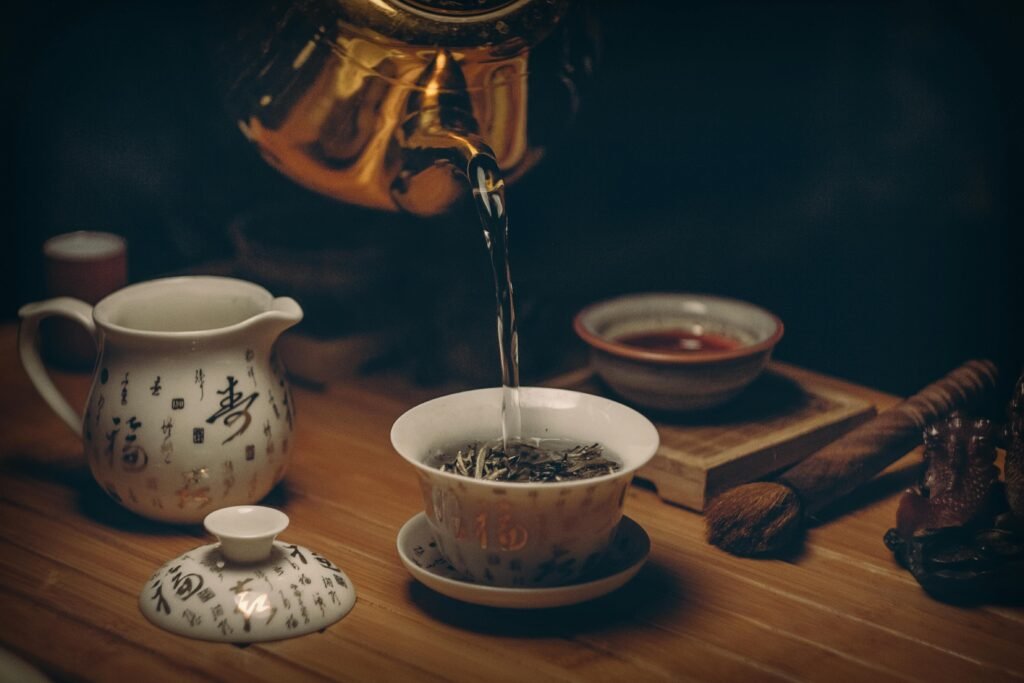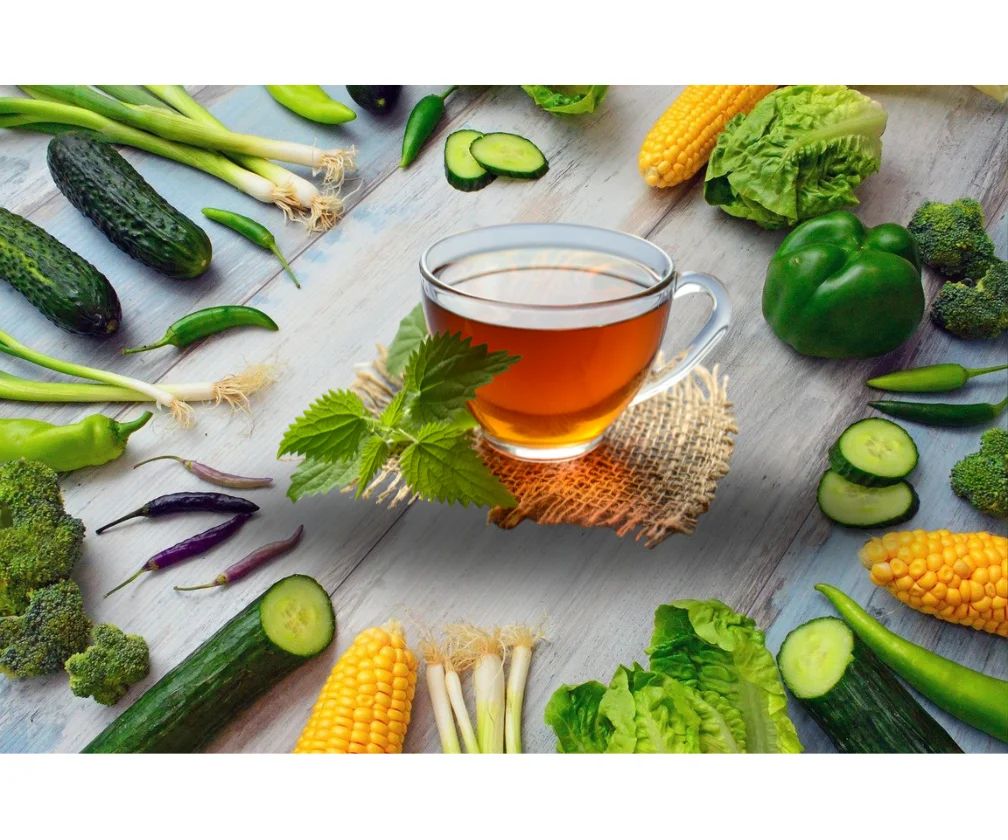Pure Berberine is a bioactive compound derived from various plants, particularly from the family of alkaloids found in species such as Berberis vulgaris (barberry), Hydrastis canadensis (goldenseal), and Coptis chinensis (Chinese goldthread).
Its historical roots trace back thousands of years, particularly in traditional Chinese medicine and Ayurvedic practices, where it was commonly used for its various health benefits. Berberine is recognized for its antimicrobial, anti-inflammatory, and blood-glucose-lowering properties, making it a versatile ingredient in herbal remedies.
In modern times, the significance of berberine has only grown, particularly in the realm of dietary supplements. The rise of health consciousness among consumers has led to an increased interest in natural and organic products. This trend has catalyzed the popularity of berberine supplements, both in its pure form and in various blends, such as the organic berberine oolong mint blend.
These blends often combine berberine with complementary herbs and plants to enhance palatability and health benefits. However, pure berberine herb retains its own strengths, offering concentrated benefits without additional ingredients that may dilute its efficacy.
The nuanced differences between pure berberine and its blended counterparts invite consumers to examine their health goals more closely. With ongoing research surrounding its potential effects on metabolic syndrome, cardiovascular health, and overall wellness, berberine supplements are becoming mainstream in dietary practices.
As awareness continues to expand around the uses and benefits of berberine, individuals are encouraged to explore both pure and organic variations to determine the best fit for their health needs. In this trending landscape of natural supplements, pure organic berberine stands out for its potency and historical relevance.
Understanding Pure Berberine
Pure berberine herb is a potent compound primarily found in various plants, including goldenseal, barberry, and Oregon grape. The extraction process involves isolating berberine from these specific plants, resulting in a concentrated form that retains its beneficial properties. This process is crucial as it ensures the bioactive components remain intact, thus enhancing the effectiveness of berberine supplements.
The primary active ingredient in pure berberine is its alkaloid structure, which contributes to its remarkable health benefits. Berberine has been extensively studied for its positive effects on metabolism.
One of the most significant advantages is its ability to enhance insulin sensitivity, which plays a crucial role in blood sugar control. By promoting better glucose metabolism, berberine can help lower blood sugar levels, making it particularly beneficial for individuals managing diabetes or pre-diabetes.
Furthermore, pure berberine exhibits potential anti-inflammatory properties, which can aid in reducing inflammation throughout the body. Chronic inflammation is linked to numerous health conditions, including heart disease and certain autoimmune disorders; thus, incorporating berberine into one’s diet may contribute to overall well-being.
Its anti-inflammatory effects can also complement its role in supporting a healthy weight by optimizing lipid metabolism and reducing fat accumulation.
When considering health supplements, the purity and origin of the berberine are essential. Organic berberine options ensure that the product is derived from plants grown without synthetic pesticides, promoting health benefits while being environmentally sustainable.
Ultimately, choosing high-quality berberine supplements that focus on purity can be a vital step towards maintaining optimal metabolic health and managing blood sugar effectively.

What is Organic Berberine Oolong Mint Blend?
The Organic Berberine Oolong Mint Blend is a carefully crafted herbal infusion that combines the potent properties of pure berberine herb with the unique flavors and benefits of oolong tea and mint.
This blend targets health enthusiasts seeking to harness the power of berberine while enjoying a flavorful beverage. Berberine, a compound extracted from various plants, is renowned for its potential benefits, especially in supporting metabolic health and maintaining optimal glucose levels.
Oolong tea, a partially oxidized tea, is praised for its rich flavor and numerous health benefits, including aiding in weight management and enhancing mental clarity.
When combined with pure organic berberine, oolong tea may enhance the bioavailability of the berberine compound, thus promoting its positive effects on the body. The warm, rich notes of oolong tea also provide a pleasant base, making the blend not only beneficial but also enjoyable to consume.
Mint, on the other hand, is well-known for its refreshing taste and digestive benefits. Adding mint to the blend further enhances the flavor profile and brings its own set of advantages, such as soothing gastrointestinal discomfort and acting as a natural breath freshener.
Consequently, the combination of organic berberine, oolong tea, and mint may promote overall well-being while delivering a delightful drinking experience.
This herbal blend can be a wonderful addition to one’s daily routine, allowing users to enjoy the combined effects of pure berberine herb, oolong tea, and mint. Leveraging the potential health benefits of each ingredient not only creates a harmonious blend but also offers a multifaceted approach to health enhancement through the consumption of herbal supplements.

Nutritional Profile Comparison
When evaluating the nutritional profiles of pure berberine herb and the organic berberine oolong mint blend, several key components must be considered to determine their efficacy and suitability for various dietary needs.
Pure berberine is primarily known for its active compound, berberine alkaloid, which possesses numerous health benefits, including its potential to support metabolic health, regulate blood sugar levels, and promote cardiovascular wellness.
In contrast, the organic berberine oolong mint blend combines berberine with other natural ingredients, such as oolong tea and mint. While the addition of oolong tea can contribute beneficial polyphenols and antioxidants that can further enhance metabolic functions, the overall concentration of berberine may be diluted depending on the blend’s formulation.
Thus, while both forms provide metabolic support, pure berberine offers a more concentrated source of the main active ingredient, ensuring maximum effectiveness.
Dosage is another area of differentiation. Pure berberine supplements typically recommend a daily dosage ranging from 900 mg to 1500 mg for optimal health benefits, divided into multiple doses throughout the day.
In comparison, the organic blend may contain lower concentrations of berberine due to the presence of other ingredients, necessitating a higher overall intake to achieve the desired effects. Those seeking to maximize the benefits of berberine may find that pure berberine supplements deliver higher concentrations without the need for excessive intake.
Furthermore, when considering additional nutrients, the organic blend might include specific minerals and vitamins beneficial for overall wellness. While these nutrients offer supportive benefits, they may not significantly enhance the primary actions of berberine.
Overall, while the organic blend can provide a unique flavor profile and supplementary nutrients, pure organic berberine remains a more potent option for those primarily seeking the medicinal advantages of berberine supplements.

Potential Side Effects and Considerations
When considering the use of pure berberine herb or an organic berberine oolong mint blend, it is vital to understand the potential side effects and important considerations that may affect different individuals.
While many users report positive outcomes from incorporating berberine supplements into their routines, it is important to note that side effects can occur. Commonly reported effects include gastrointestinal issues such as diarrhea, constipation, and stomach cramps.
These effects are particularly relevant when higher doses are consumed and may lead some individuals to seek alternatives, such as opting for an organic berberine blend, which may offer additional digestive aids.
Another essential consideration is the interaction of berberine with various medications. Pure berberine is known to have the potential to lower blood sugar levels, which can be beneficial for those managing diabetes but could pose risks for individuals on certain medications, especially those that also lower blood sugar.
Therefore, it is crucial for people taking antidiabetic, anticoagulant, or antihypertensive medications to consult healthcare professionals before beginning a regime involving either organic berberine or the pure berberine herb.
Moreover, different demographics may have varied reactions to berberine supplements. Pregnant or breastfeeding women, for instance, are generally advised to avoid berberine, as its effects on fetal development are not well-studied.
Individuals with liver conditions or those undergoing liver treatments should also be cautious, as berberine can affect certain liver enzymes. Therefore, consulting a healthcare provider is essential before starting any supplementation, especially for individuals in these demographics.
In conclusion, while both pure and organic berberine offer health benefits, potential side effects and individual considerations must be taken into account. This ensures that users can make informed decisions and choose the best option suited to their health needs.

Efficacy of Pure Organic Berberine vs. Supplements
Pure organic berberine, derived from various plants such as goldenseal and barberry, has been the focus of numerous studies indicating its health benefits, particularly in metabolic health, weight loss, and blood sugar regulation.
Many individuals turn to berberine supplements, which are often marketed for similar advantages, but the efficacy of these supplements can vary considerably. The extraction process, potential additives, and the source of berberine greatly impact the quality and effectiveness of the product.
Research suggests that pure berberine herb demonstrates superior bioavailability compared to many encapsulated supplements. A study published in the journal “Phytotherapy Research” indicates that the natural plant source allows for better absorption and utilization of the beneficial compounds in the body.
This means that individuals using pure organic berberine might achieve more pronounced results in managing conditions like type 2 diabetes and high cholesterol levels, making it an optimal choice for those seeking effective health solutions.
Testimonials from users of both pure organic berberine and standard supplements reveal a pattern. Many report experiencing more significant health improvements, including weight loss and enhanced energy levels, from pure forms.
Additionally, expert opinions lean towards the idea that organic berberine, due to its natural composition, offers fewer side effects and is more holistic in its approach, aligning with the growing trend towards natural remedies in health management.
However, it is essential to consider that not all berberine supplements are inherently ineffective. Some quality brands may encapsulate pure berberine in a way that maintains its integrity. Still, for those looking for maximum efficacy and a natural approach, pure organic berberine stands as a compelling option, providing a potent alternative to traditional berberine supplements.

Choosing the Right Berberine Option for You
When it comes to selecting the right berberine option, the decision often hinges on individual health needs and lifestyle preferences. The primary choices in the market typically include pure berberine herb and organic berberine oolong mint blends. Understanding the distinct characteristics of each can significantly aid in making an informed decision.
Pure berberine is renowned for its concentrated therapeutic properties, making it a popular choice for those seeking to address specific health issues such as metabolic syndrome, blood sugar regulation, and cholesterol management. If you prioritize potency and are interested in maximizing the health benefits of berberine, opting for pure berberine supplements may be the ideal route for you.
On the other hand, if you appreciate a more integrative approach, the organic berberine blend, which may include complementary ingredients like oolong tea and mint, can add an element of flavor and holistic support.
It is crucial to consider quality when selecting any berberine product. Look for brands that offer third-party testing to ensure the purity and potency of their products.
High-quality organic berberine will often indicate its sourcing and extraction methods on the label, allowing consumers to make educated choices. Pay attention to the ingredient list; products with additional fillers or artificial additives may compromise the potential benefits of the berberine herb.
Additionally, taking into account your personal lifestyle can influence your decision. Active individuals who prefer convenience may opt for easy-to-consume berberine supplements, while those who enjoy a calming tea ritual may find delight in an organic blend.
Ultimately, your choice between pure berberine and organic berberine should reflect your unique health goals and personal preferences, ensuring that your supplement aligns with your overall wellness journey.

Sustainability and Sourcing of Berberine
When considering the use of berberine supplements, it is crucial to examine the sustainability and sourcing of the raw materials involved. Pure berberine herb has gained recognition for its potential health benefits, but the way it is sourced is equally important for both environmental and ethical reasons. The demand for organic berberine has led to an increase in cultivation practices, but not all sources adhere to sustainable or organic farming methods.
Organic certifications represent a commitment to environmentally friendly farming practices. For a product to be labeled as organic, it must meet strict regulations set by authorized organizations. These guidelines ensure that no synthetic fertilizers or pesticides are used, which can harm the ecosystem.
By choosing organic berberine, consumers support farming methods that maintain soil health, promote biodiversity, and reduce pollution. This is particularly important as the popularity of berberine supplements continues to rise, and the pressure on natural resources expands. Environmental stewardship is often manifested in the form of policies that favor the protection of indigenous plant species from overharvesting.
Ethical harvesting practices play a significant role in the sustainability of berberine. Sustainable sourcing often entails collaboration with local communities and indigenous populations, ensuring that they benefit from the harvesting of berberine. This cooperative approach ensures that resources are managed responsibly and that local economies are supported, which ultimately leads to a more sustainable model of production.
In summary, when selecting berberine supplements, it is essential to prioritize products with proper organic certifications and a commitment to ethical sourcing practices. Not only do these considerations contribute to personal health, but they also have broader implications for environmental sustainability and social responsibility. Pure organic berberine is a choice that aligns with these values, making it a responsible option for consumers.

Conclusion: The Case for Pure Organic Berberine
When considering the various options available for berberine consumption, the choice between pure berberine herb and organic berberine blends becomes significant. Throughout our discussion, we have highlighted the numerous health benefits associated with pure organic berberine. These benefits include its potential to support metabolic health, enhance gut health, and provide anti-inflammatory properties, all of which are increasingly sought after in today’s health-conscious society.
Reliability is another crucial aspect of choosing pure organic berberine. Unlike many berberine supplements that are available on the market, which can vary in quality and concentration, pure berberine offers a consistent and potent source of this beneficial compound.
Consumers can trust that they are getting an authentic product that has not been diluted or compromised by additional ingredients or fillers present in blended formulations. This transparency is essential for anyone seeking to make informed health choices.
The authenticity of pure organic berberine also stands as a pivotal point in our evaluation. In an era where consumers are becoming more discerning about the supplements they choose, the appeal of certified organic sources cannot be overstated.
Organic berberine guarantees that the product is free from harmful pesticides and chemicals, ensuring a safer experience. Furthermore, organic cultivation practices support environmental sustainability, aligning the use of such supplements with broader health and ecological goals.
In conclusion, when weighing the options between pure organic berberine and other blends or supplements, the evidence strongly favors the former.
The blend of health benefits, reliability in quality, and commitment to authenticity solidifies pure organic berberine as a superior choice for anyone looking to enhance their well-being. Choosing this form embodies a proactive approach to health that prioritizes efficacy and safety.



